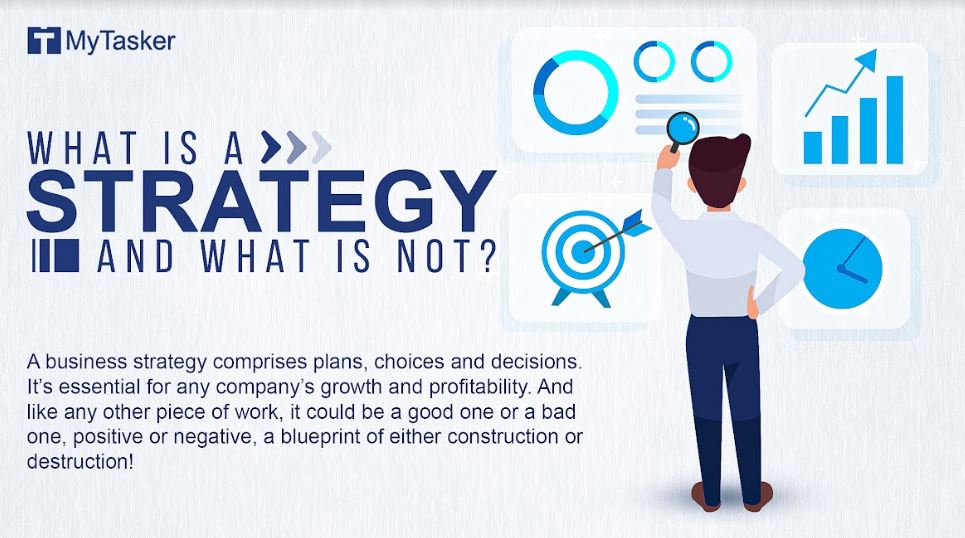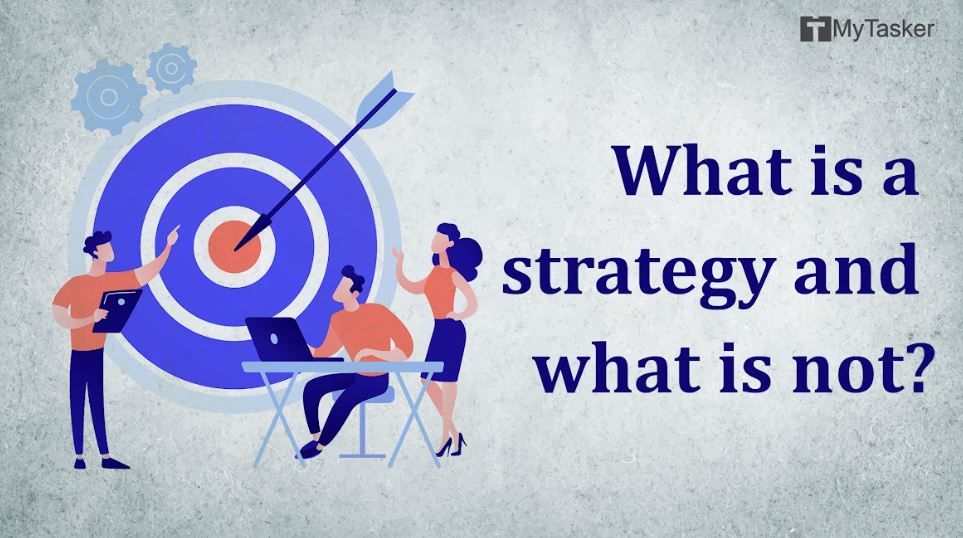The word “strategy” has become a cliché in the corporate world. It often gets misquoted or defined wrongly.
It won’t be an overstatement to say that it evokes a sense of materialization. Hence, it’s crucial to understand its purpose and preparation.
A business strategy comprises plans, choices and decisions. It’s essential for any company’s growth and profitability. And like any other piece of work, it could be a good one or a bad one, positive or negative — a blueprint of either construction or destruction!
To keep it to your advantage, and bypass any sort of misunderstanding, you must know what is NOT a strategy.
For instance, our vision, goals and ambitions to ascend to any corporate pedestal ought not to be considered as a strategy. These feelings or ambitions would remain mere fantasies if we don’t devise a strategy to reach the pedestal.
Similarly, budgeting, data analysis and forecasting are not to be considered as strategies in themselves. Though data does play a crucial role in preparing a strong strategy and improving our performance, it can’t be presented or referred to as any sort of complete strategy. It’s just an ingredient, not the entire dish.
Our desires can be considered as our aims, and our strategies should be built on the “hows” to achieve those desires.
Here are some pivotal questions that you should ask while preparing any strategy:
- Does your business rely on limited products or services?
- What are the revenue-generating aspects of your business?
- Does your business revolve around a handful of clients or distribution channels?
- What are your priorities (internal and external) in terms of business expansion?
- What are your fundamental measures to accomplish benefits?
- How does your organization deal with clients? Are sufficient efforts made to understand what the clients want? Are you certain about what they value?
- What are the key measures to maintain a strategic distance from any foreseen crisis?
- What do your colleagues see as the best options for them? What are their perspectives on the scope of growth and the challenges involved?
- Are you working and operating in a rigid, bureaucratic environment?
- Does any part of your planning seem fragile or lacking in direction? Do you lack confidence in your ability to make correct decisions?
A clearly drawn strategy provides the catalyst for business achievement. Conversely, a weak or misunderstood strategy may prompt a company to go bankrupt.
Your business strategy is the roadmap to your success. So, let’s draw it”.
Get in touch with us for any tips, advise or assistant. You have our heartfelt best wishes for yourself and your business!

















